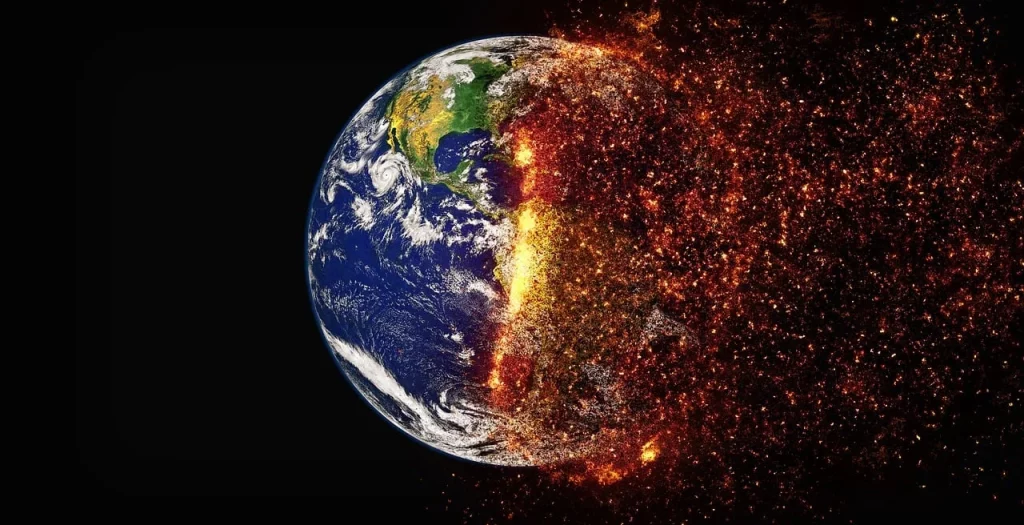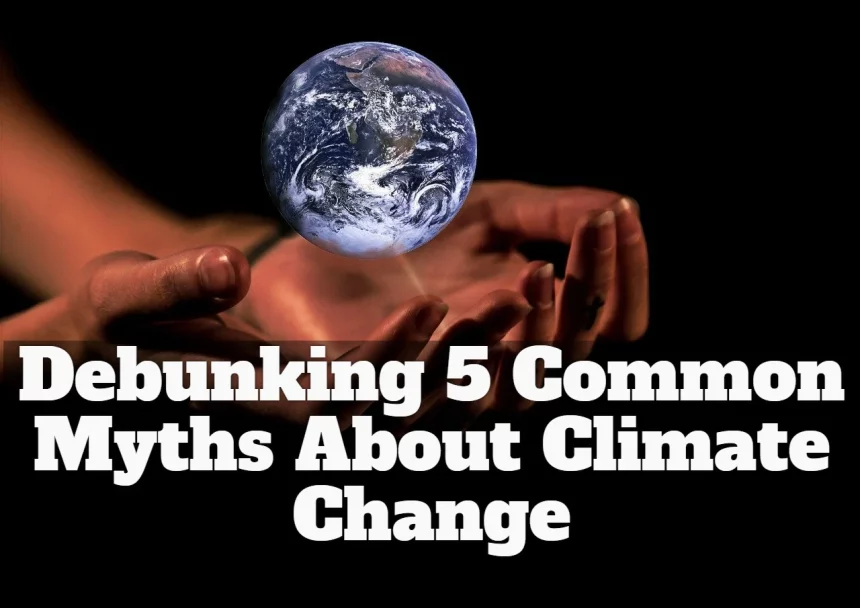In today’s world, climate change is a crucial global issue with widespread impacts. Despite scientific agreement on its reality, persistent myths hinder our understanding and delay meaningful efforts to address its consequences. This blog aims to unravel and dismiss prevalent myths about climate change, shedding light on the facts that can guide informed actions.
5 Common Myths About Climate Change

Myth 1: Climate Change is Only a Natural Cycle
While natural factors affect the climate, the current warming trend goes beyond normal variations. The Intergovernmental Panel on Climate Change highlights human activities like the combustion of fossil fuels and widespread deforestation as the reason for over 50% of the Earth’s temperature surge since the mid-20th century.
Myth 2: Climate Models are Unreliable
Skeptics often question the trustworthiness of climate models. While casting doubt on the predictability of forthcoming climate change projections. Nevertheless, it’s crucial to acknowledge that scientists have developed these models as sophisticated tools to simulate the complex dynamics of the Earth’s climate system. While not flawless, they have proven remarkably accurate in predicting observed trends. In debunking skepticism, climate models have successfully replicated past climate changes and predicted observed phenomena like global warming and glacier melting.
- Advertisement -
Myth 3: The Earth is Cooling
Critics often claim that the occurrence of severe cold spells in specific areas contradicts the concept of global warming. It’s important, to differentiate between weather and climate. Weather pertains to brief atmospheric conditions, while climate reflects enduring patterns. Although certain regions might undergo temporary fluctuations in temperature, the overarching global pattern reveals a persistent upward trajectory in temperatures. According to the World Meteorological Organization, the warmth has surpassed the previous decade since the 1980s.
Myth 4: CO2 Not a Significant Driver of Climate Change
Skeptics also believe that carbon dioxide (CO2) is not of any significance in the greenhouse effect, attributing a more substantial role to factors like the sun and water vapor. However, scientists passionately disprove this concept. The overwhelming agreement among scientists emphasizes that human-induced activities are the primary drivers in the increase of greenhouse gases.
Myth 5: Adapting to Climate Change is Sufficient, We Don’t Need to Mitigate it
While some contend that solely adjusting to the repercussions of climate change suffices, tackling this issue necessitates more than mere adaptation. It calls for the proactive mitigation of greenhouse gas emissions, going beyond a narrow focus on adaptation alone. While adaptation is undoubtedly important, it alone cannot sufficiently tackle the underlying issues. At last the concept of Adaptation and mitigation efforts must work hand in hand. To create resilience and build a sustainable future.
Conclusion
Unraveling the common myths surrounding climate change is crucial for enhancing awareness, and routing away from debates. The goal of this blog is to deepen comprehension that our actions bear responsibility for climate change, urging us to be alert and take necessary actions. With solid scientific backing, it becomes evident that our activities significantly influence the ongoing climate alterations. Scattering these misconceptions lays the groundwork for conversations based on awareness, promoting collective efforts to address the repercussions of climate change. Individuals, communities, and policymakers must join forces in confronting these challenges, striving for a future that is both sustainable and resilient for our beloved planet.


